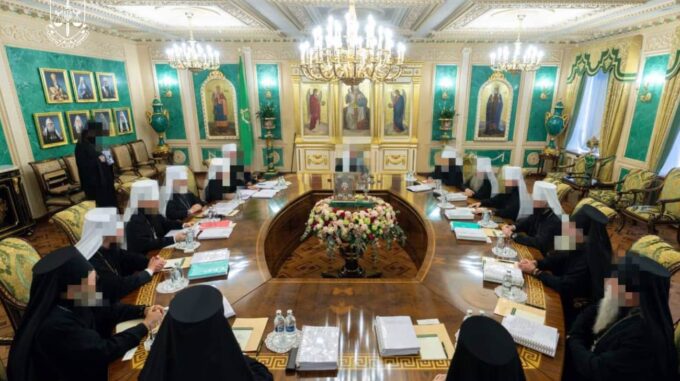The Security Service of Ukraine, in cooperation with the Office of the Prosecutor General, has announced suspicion against another group of high-ranking representatives of the Russian Orthodox Church (ROC), who actively contributed to Russian aggression and the occupation of Ukrainian territories

The relevant press release was published recently, stating that the investigation established the guilt of 14 metropolitans and archbishops who directly facilitated the implementation of the Kremlin’s geopolitical strategy on Ukrainian land. Sources within law enforcement agencies report that the suspects began collaborating with the occupation administration from the earliest months of the full-scale invasion. According to the investigation, they were members of the leadership structures of the “Holy Synod” of the ROC, controlled by Moscow — the so-called majority operating under the patronage of the Moscow Patriarchate, which was evidently influenced by Russian special services and the political elite of the Russian Federation. According to detailed investigation materials, from 2022 through 2024, these high-ranking officials actively cooperated with Moscow’s leadership, supporting the seizure and subjugation of Ukrainian religious communities under their influence. They assisted in implementing decisions by the ROC leadership regarding the forceful seizure of church property in temporarily occupied regions: Zaporizhzhia, Luhansk, Donetsk, Kherson, and Crimea. Under their leadership, the forced transfer of Ukrainian religious communities into Moscow’s jurisdiction was carried out. It is also known that during the takeover and pseudo-confessional transformations in the seized churches, leaders loyal to Moscow were appointed, and new bishops and archbishops actively propagated Russian propaganda ideas, justifying Russian military actions against Ukraine and glorifying the occupation regime. Among the suspects are metropolitans and archbishops representing various regions of Russia, including: Alexander Snyhurov (also known as Artemiy), Metropolitan of Khabarovsk and Primorsky; Mikhail Kondratyev (Methodius), Bishop of Kamyansk and Kamyshev; Vitaliy Yermakov (Ambrosiy), Metropolitan of Tver and Kasimov; Leonid Gorbachev, Patriarchal Exarch of Africa; Andriy Malakhonov, Archbishop of Petropavlovsk and Kamchatka; Pyotr Mansurov (Peter), Bishop of Kalachinsk and Muromtsevo; Mykola Tzerpitsky (Lev), Metropolitan of Novgorod and Old Russia; Yuriy Yevpifanov (Arseniy), Metropolitan of Lipetsk and Zadonsk; Mikhail Nakonechnyy (Kirill), Metropolitan of Kazan and Tatarstan; Aleksey Krivenko (Mykola), Bishop of Northern Baikal and Sosnovo-Ozersk; Valeriy Golubev (Ilya), Archbishop of Anadyr and Chukotka; Yan Kajgorodtsev (Ilarion), Bishop of Kineshem and Palekh; Illia Pyerov (Tarasiy), Bishop of the North Sea and Ump; and Archbishop of Rovenki and Sverdlovsk Alexander Taranov. All these Orthodox hierarchs received formal notice of suspicion in absentia under a article that entails criminal responsibility for aiding an aggressor state in changing Ukraine’s borders and violating its constitutional order. This article criminalizes assistance in violations of territorial integrity and sovereignty committed with intent and prior conspiracy. Ongoing investigative actions are aimed at bringing other suspects to justice, and comprehensive measures are being taken to locate and apprehend those involved in crimes against Ukraine’s independence and territorial integrity. Ukrainian law enforcement emphasizes that work in this area continues, and soon all those responsible for assisting occupation efforts will be held accountable under current legislation. This step by the Ukrainian special services indicates a systematic approach to combating Russian agents and influence within the religious sphere, which actively supports and propagates the occupying forces. At the same time, it underscores the importance of protecting Ukraine’s national interests and territorial integrity, which remain priorities in the fight to preserve sovereignty.

